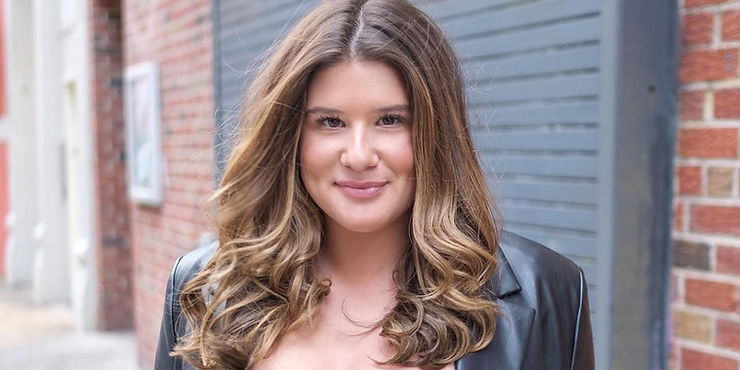By:Bryan Zou
26-year-old Tik-Tok Star Remi Bader walks into Deep Hollow Ranch, Montauk, on June 11th, prepared to have some fun riding horses. Unfortunately for her, the ranch outright denied her the ability to ride due to her weight being too much for the horses. Bader reportedly “never had this issue” before. After posting her story on Tik-Tok, a teenager working at the ranch responded, saying, “when you’re not a fat bi***, you can ride at Deep Hollow Ranch in Montauk”. The ranch has since responded with an apology, and while this may seem like an out-of-the-ordinary occasion, it isn’t for many Americans.
Obesity is classified by having a BMI (Body Mass Index) of over 30, something many Americans have. One’s weight shouldn’t have a big effect on a person’s daily life and ability to work, but it does. More and more overweight people are being discriminated against, whether it be at work, at bars, or many other establishments.
Research has shown that BMI isn’t too accurate for mortality rate, and weight isn’t as dependent on willpower and action alone. Studies have shown that weight has strong ties with genetics and surroundings. Even though BMI doesn’t necessarily mean physical imparity, it’s still standardly used to measure one’s physical capability.
A study has shown that on average, every six pounds a woman gains over average weight, which is equitable to about a 2% drop in their paycheck. Weight discrimination has become more prevalent as the years pass, and laws to prevent it have just recently been made or have never been made at all. Compared to laws protecting smokers, weight discriminatory laws are essentially non-existent. There are only a few laws throughout the entire country protecting the rights of obese people.
Even then, many states outright allow weight discrimination, as shown at New Jersey’s Atlantic City Casino. In 2013, a New Jersey Superior Court ruled that since there were no laws outright banning weight discrimination, the Atlantic City Casino can regulate the weight of their waitresses. Judge Nelson Johnson wrote, “plaintiffs cannot shed the label ‘babe’[alternate name for the waitress]; they embraced it when they went to work for the Borgata [Atlantic City Casino].”
Bosses have also been getting away with firing overweight people. While the Americans with Disability Act prevents firing based on disabilities, many bosses get around this by saying that “fat people are essentially undisciplined and weak” which doesn’t necessarily correlate to a disability. Judges are hesitant to include weight under Civil Rights Acts as well, or specifically Civil Rights of 1991, which “provided for plaintiffs to receive monetary damages in cases of harassment or discrimination based on sex, religion, or disability.” The line between disability and obesity is still able to be fought on either side.
While the situation may seem dire, there are activists pushing for bills to be passed in their respective states. In New York, the Retail, Wholesale & Department Store Union (RWDSU) is working with two lawmakers to pass a bill that protects the rights of citizens with abnormal weights and heights as a part of the Civil Rights of New York. Massachusetts also has activists pushing for bills as well, and some states have protection already.
One such example is Michigan, where a store owner argued that her company only fired her when she was fatter and promoted her when she wasn’t. Along with San Francisco, Michigan has developed some level of protection for their obese citizens.
Clothing is another industry impacted by discrimination indirectly. Many clothing companies don’t include sizes of clothes for people with wider bodies. Activists and influential social media personalities are working towards more inclusive sizes. A retired attorney for the U.S Department of Labor states, “people may not even know they’re biased against people with obesity, people of size, but are making decisions based on it.” She chairs the Obesity Action Coalition with 75,000 members.
Progress is slow but with numbers, change can be made. As shown in the past, these Civil Rights Acts tend to take decades but when citizens work together, nearly anything can happen. One person helping may not seem to make a big difference, but a little at a time can go a long way.
Sources:











